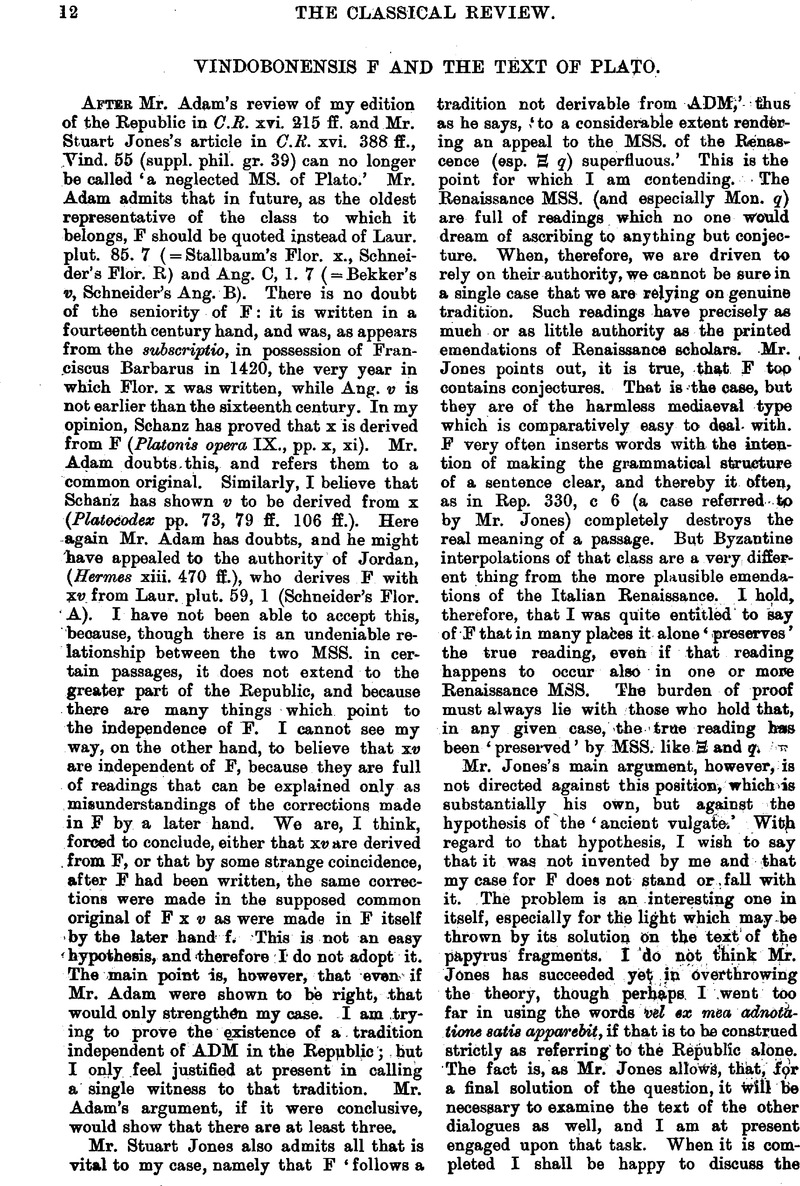Article contents
Vindobonensis F and the Text of Plato
Published online by Cambridge University Press: 27 October 2009
Abstract

- Type
- Original Contributions
- Information
- Copyright
- Copyright © The Classical Association 1903
References
page 13 note 1 I must, however, at once correct an inadvertence on the part of Mr. Jones, which has ed him to misrepresent my view. He attributes to me the statement that the recension represented by our best MSS. of Plato, was made ‘possibly about the ninth century A. D.’ Such a view has been, and is, held; but I have never been able to believe that anyone in the ninth century could have made a ‘recension’ of Plato. What I said was ‘the fifth century A.D.,’ not ‘the ninth,’ and I mentioned that date because I think it is the latest possible one. I should have no objection, so far as this argument is concerned, to putting the date of the recension earlier still. If, for instance, we were to adopt Usener's theory of the history of Plato's text, we should obviously have to do so. I may be allowed also to say that, in the Pratfatio to vol. ii. of my Plato, in dealing with the riews of A. Schaeffer, I expressly rejected the theory of a ninth century recension, so far as the Clarkianus is concerned.
page 13 note 2 The number of these agreements is far greater than any one would be led to infer from what Mr. Jones says; but it is not so much their number as the peculiar way in which they occur that constitutes the real problem. It is not a question of making ‘lists’ of agreements. These would prove nothing. Mr; Jones himself has adopted the only sound method, namely, that of taking passages of considerable extent and studying every variant in them. That is what I did also in my article (C.R. xvi. 98 ff.). I took a long passage which is quoted by Easebius, and I noted almost every variant of importance. If that passage stood alone (and it. certainly does not) it would of itself raise the problem.
page 13 note 3 A selection from them is given in the Appendix to Schanz's Plato, vol. IX.
page 13 note 4 The agreement of F with S does not appear in any dialogue, before the Hippias.minor for reasons given by Schanz (loc. cit.). Nothing, therefore, can be inferred from it with regard to the text of S in dialogues not contained in F.
- 1
- Cited by


